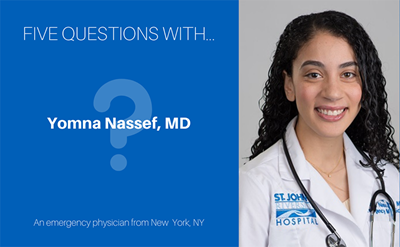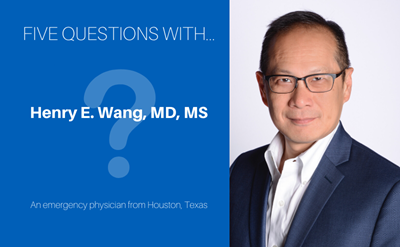WASHINGTON, D.C.—The American College of Emergency Physicians (ACEP) and its Georgia Chapter today said a policy that Blue Cross/Blue Shield of Georgia (BCBS) plans to implement in July, making subscribers pay for any emergency department visit that turns out not to be an emergency, violates the "prudent layperson" standard, which is codified in federal law, including the Affordable Care Act. It's also law in more than 30 states.
The "prudent layperson" standard requires that insurance coverage be based on a patient's symptoms, not their final diagnosis. Anyone who seeks emergency care suffering from symptoms that appear to be an emergency, such as chest pain, cannot be denied coverage even if the final diagnosis does not turn out to be an emergency. It also prohibits insurance companies from requiring patients to get prior authorization before seeking emergency care.
"This new policy will mean that patients experiencing emergencies will not go to the ER because of fear of a bill, and could die as a result," said Rebecca Parker, MD, FACEP, president of ACEP. "Health plans have a long history of not paying for emergency care. Now, they are trying to roll over federal law that emergency physicians fought patients from this 'profits first, people last' behavior by insurers."
In the new policy, final diagnoses that BCBS considers to be "non-urgent" would not be covered if the patient goes to the emergency department, leaving patients to decide whether they are experiencing an emergency. A 2013 study in JAMA found a nearly 90 percent overlap in symptoms between emergencies and non-emergencies.
"This policy threatens the safety of all Georgians," said Matt Lyon, MD, FACEP, president of Georgia's ACEP Chapter. "We treat patients every day with identical symptoms – some get to go home and some go to surgery. There is no way for patients to know which symptoms are life-threatening and which ones are not. Only a full medical work-up can determine that."
Dr. Lyon adds that this action will be especially bad for Georgia's rural population, where citizens are often limited in their options for medical care.
"If patients think they have the symptoms of a medical emergency, they should seek emergency care immediately," said Dr. Parker. "The vast majority of emergency patients seek care appropriately, according to the CDC. Patients cannot be expected to self-diagnose their medical conditions, which is why the prudent layperson standard must continue to be included in any replacement legislation of the Affordable Care Act."
 American College of Emergency Physicians
American College of Emergency Physicians







